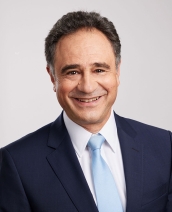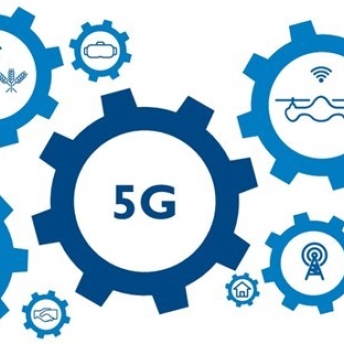Dr. Karim Taga
Karim advises board members and CEOs to take effective decisions on the telco transformation journey.

Areas of Focus
Education
Past Experience

Karim is Managing Partner, Global Head of Functional Practices. Prior to that, Karim led the TIME practice globally for over 12 years since 2012. He has 30 years of experience with ADL in the telecommunication area and previously worked with a leading global telecom supplier.
In Arthur D. Little, Karim’s work focuses primarily on three functional areas:
- Growth strategies and business transformations
- Corporate Finance – Transaction support, mainly working with Private Equity firms and Banks
- Boardroom presentation and facilitation
Besides his management consulting assignments with clients in 4 industries:
- he acts as a Jury member for several Telecom & Media prize award ceremonies in Asia, Europe, and in the US.
- he supports several telecommunication councils and associations as well as governments and regulators in setting their (digital) agenda as an advisor
- he is chairing and facilitating top executive international events and conferences
Before joining ADL he worked for several years for Ericsson and was a research assistant professor at the University of Technology in Vienna. Furthermore, he enjoyed four different education systems: Tunisia (Lycée El Menzah V), France (Lycée JB Say/ESEM), the USA (UC Berkeley), and Austria (TU Wien).
Karim holds an MSc, MBA, and Ph.D.

Network APIs: Unlocking the Potential of Advanced Connectivity

Telcos: Outsource international voice!

Embracing the telco productivity race

Mobile network virtualization calls for operating model reconfiguration

State of the media market, 2022

Copper switch off: Opportunity to drive infrastructure convergence?

Time to accelerate growth

Broadcasters’ 5G evolvement within a hybrid environment

Network sharing in the 5G era

Virtualizing mobile networks

The race to gigabit fiber

Open access fiber

Telecom, media and technology – COVID-19 implications and medium-term recovery

Is your city ready to go digital?

Acing 5G pricing

Embracing the future

Beyond traditional network & IT organizations

Private Campus Networks

Digital infrastructure as a driver of competitiveness

Telecoms data monetization: Reality, not a mirage

Telecoms operators and startups: Rethink and reinvent

The race to gigabit fiber

5G deployment models are crystallizing

Karim is Managing Partner, Global Head of Functional Practices. Prior to that, Karim led the TIME practice globally for over 12 years since 2012. He has 30 years of experience with ADL in the telecommunication area and previously worked with a leading global telecom supplier.
In Arthur D. Little, Karim’s work focuses primarily on three functional areas:
- Growth strategies and business transformations
- Corporate Finance – Transaction support, mainly working with Private Equity firms and Banks
- Boardroom presentation and facilitation
Besides his management consulting assignments with clients in 4 industries:
- he acts as a Jury member for several Telecom & Media prize award ceremonies in Asia, Europe, and in the US.
- he supports several telecommunication councils and associations as well as governments and regulators in setting their (digital) agenda as an advisor
- he is chairing and facilitating top executive international events and conferences
Before joining ADL he worked for several years for Ericsson and was a research assistant professor at the University of Technology in Vienna. Furthermore, he enjoyed four different education systems: Tunisia (Lycée El Menzah V), France (Lycée JB Say/ESEM), the USA (UC Berkeley), and Austria (TU Wien).
Karim holds an MSc, MBA, and Ph.D.

Network APIs: Unlocking the Potential of Advanced Connectivity

Telcos: Outsource international voice!

Embracing the telco productivity race

Mobile network virtualization calls for operating model reconfiguration

State of the media market, 2022

Copper switch off: Opportunity to drive infrastructure convergence?

Time to accelerate growth

Broadcasters’ 5G evolvement within a hybrid environment

Network sharing in the 5G era

Virtualizing mobile networks

The race to gigabit fiber

Open access fiber

Telecom, media and technology – COVID-19 implications and medium-term recovery

Is your city ready to go digital?

Acing 5G pricing

Embracing the future

Beyond traditional network & IT organizations

Private Campus Networks

Digital infrastructure as a driver of competitiveness

Telecoms data monetization: Reality, not a mirage

Telecoms operators and startups: Rethink and reinvent

The race to gigabit fiber

5G deployment models are crystallizing
More About Karim
- Vienna University of Technology, AustriaPhD, Mechanical Engineering and Analytical Chemistry
- Webster University, AustriaMBA, International Business and Marketing
- Polytech Orléans, FranceMSc, Mechanical Engineering and Material Science, with a master’s thesis at UC Berkeley
- Ericsson (before 1997)Product Manager
- University of Technology in ViennaAssistant Professor (Univ. Ass.)

